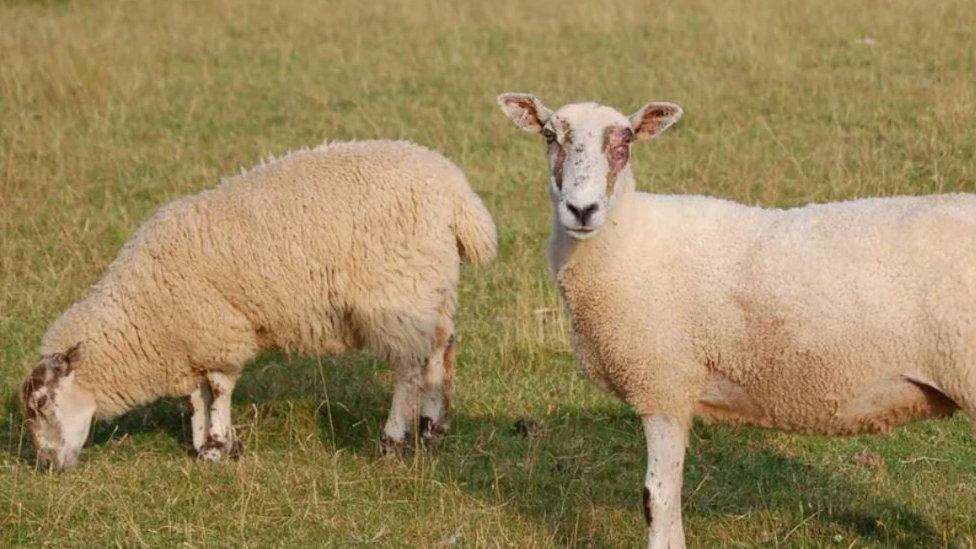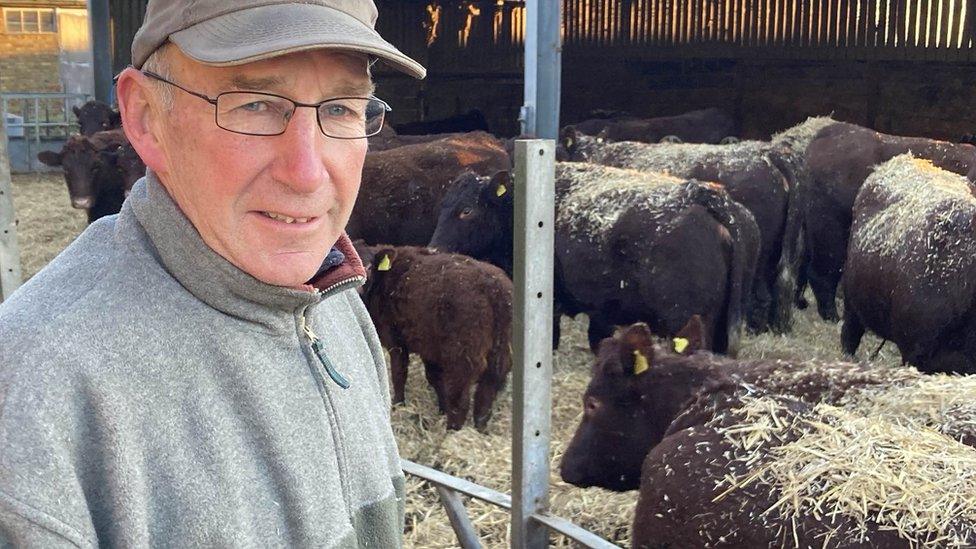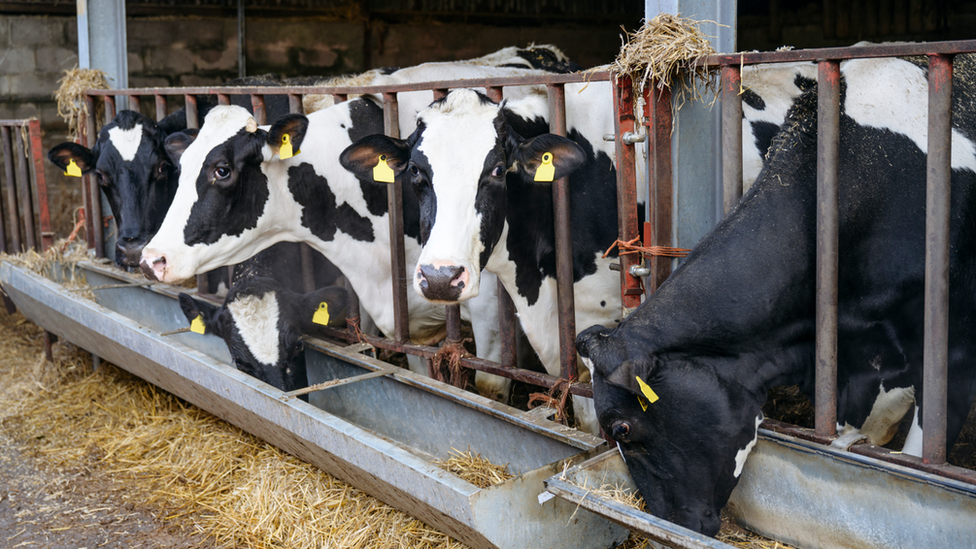Bluetongue: Fresh case in Kent despite exclusion zone
- Published

The latest bluetongue case in Kent was a sheep near Aylesham
A fresh case of bluetongue has been reported in Kent despite restrictions on the movement of animals.
The government said the virus was found in a sheep on a premises near Aylesham in an existing control zone.
Restrictions were put in place in east Kent in November after five cases of bluetongue were found in cattle.
A government statement on the latest Kent case said: "The positive animal will be humanely culled to minimise the risk of onward transmission."
It added: "The control zone is not being extended and movement restrictions continue to apply."
The original 10km (6 mile) temporary control zone restricting the movement of animals was extended in December to cover much of east Kent.
Farmer Roger Dunn, from Ash, said not being able to move animals around was "financially very difficult".

Farmer Roger Dunn was concerned about restricting animal movement
Bluetongue is a disease spread by biting midges affecting cattle, sheep and goats.
It does not affect people or food safety, but outbreaks can result in prolonged animal movement and trade restrictions.A government spokesman said: "There are 52 bluetongue cases in England on 29 premises."
Hugh Richard, National Farmers' Union representative in Kent, said the government needs to stop the outbreak before the spring.
He said: "If you saw 25% losses of animals, as we have done on the continent, in the UK, it would be the end of many farmers' livelihoods."

Follow BBC South East on Facebook, external, on X, external, and on Instagram, external. Send your story ideas to southeasttoday@bbc.co.uk, external.
Related topics
- Published27 November 2023

- Published9 December 2023

- Published19 June 2023

- Published6 December 2018
